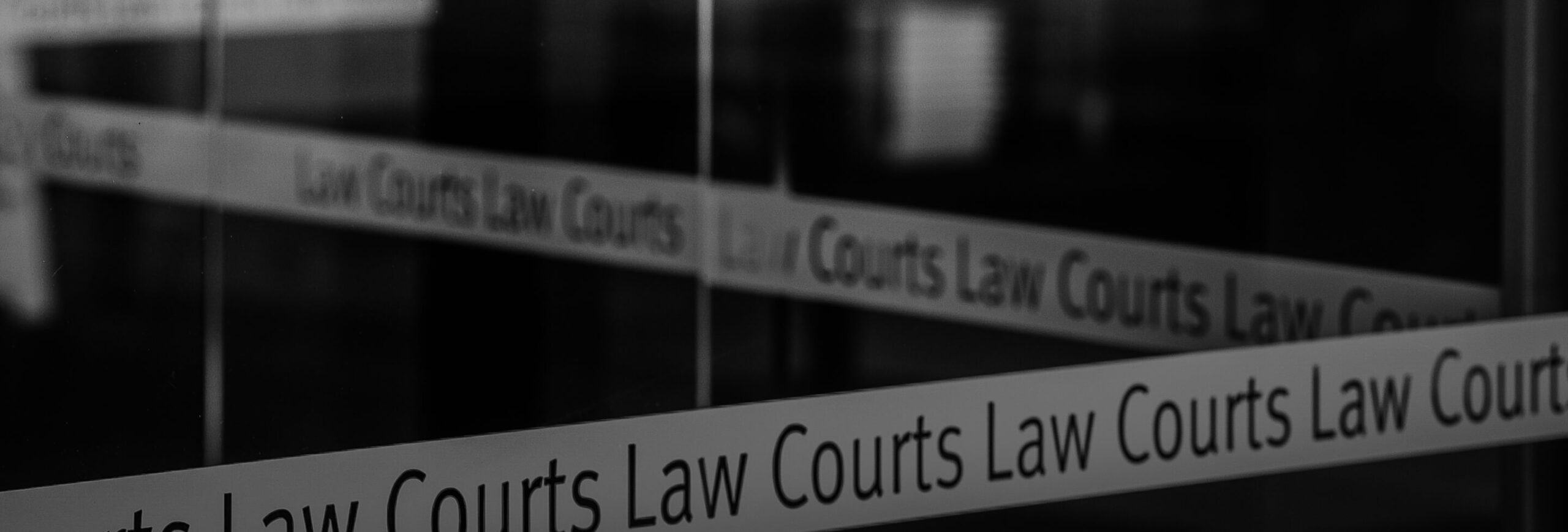A professional estate lawyer can safeguard the inheritance of your wealth.


博通遗嘱遗产律师有丰富的遗产规划,遗产认证,和在法庭保卫和挑战遗嘱的实战成功经验。我们可以为您快速经济的建立有效遗嘱保障财富传承。
博通悉尼遗嘱律师能快速便宜的为您立遗嘱保护您的资产不被子女离婚分掉。博通悉尼遗产律师免费终身保管您的遗嘱原件并可以用比公立机构便宜的价格管理遗产。
If you do not have the correct will or estate planning, it may lead to the following outcomes:
- Assets may be directly distributed to beneficiaries and become subject to division in a divorce.
- Applying for an estate administrator can result in tens of thousands of additional legal fees
- Family members contesting the inheritance can result in significant legal expenses.
Broaden Legal's Will and Estate lawyers can provide advice to help you avoid the risks mentioned above.
Making a valid will quickly and economically
Integrating the elements of family law
Specialist Will and Estate Lawyers:
- We can make legally valid wills quickly
- Our simple wills and trusts start at $550
- Wills and trusts to protect family assets from daughter-in-laws and sons-in-laws
- Free lifetime storage of original wills in a professional safe
- Simplified probate eliminates tens of thousands of dollars in wasted legal fees
- Cheaper administrator's fees than government organisations
- Defend a Will in Court or Challenge an Unfair Will
Why Choose Us
Reasonable charges
我们收费合理透明。无隐藏收费。每一个账单都是明细账单。我们一开始就告诉您胜算和费用相关的真实情况。如果您的案件有和解的可能我们会尽量促使和解节约费用和时间。

Specialised Team of Lawyers
我们只做擅长的领域。我们有真正大量的出庭终审/陪审团庭审实战经验。我们和多位皇家出庭律师(部分已经成为法官)和有实力潜力成为皇家出庭律师的出庭律师有长期的合作和良好的关系。

Professional commitment
我们的目标是为您争取最大的利益。我们不会把您的案子丢给没有经验的律师。我们有丰富出庭经验的主任律师会亲自负责您的案件。email或者微信我们会尽量在24小时内书面回复。

Testimonials

Q Liu

Y Xie

J Kong
We can help with the following issues
Broaden Legal's Will and Estate lawyers specialize in handling various inheritance-related matters, including
- Draft Will
- Draft Testamentary Trust
- Apply for Probate
- Apply for Letter of Adminstration
- Safe Keeping Will
- Estate Management
- Defending Will
- Challenging Will
FAQs
If you do not have a valid will or estate plan, it may result in the following outcomes: Your descendants may incur tens of thousands of additional legal fees in handling your estate matters; disputes between your children or family members could lead to hundreds of thousands of legal fees and strained relationships; your assets may pass directly to your children and be subject to division by daughters-in-law or sons-in-law in divorce and family legal proceedings.
Broaden Legal's will and estate lawyers can help you avoid the risks mentioned above. Wills and estates are subject to property planning laws in various states and territories of Australia. In New South Wales, estate planning includes wills, enduring powers of attorney, and enduring guardianship. The laws governing estate planning in New South Wales are the Succession Act 2006 (New South Wales), the Powers of Attorney Act 2003 (New South Wales), and the Guardianship Act 1987 (New South Wales).
Estate planning can be very simple or extremely complex, especially when it involves family trusts, businesses, blended families, or overseas wills or assets. Broaden Legal can provide you with customized services tailored to your needs.
The Will will clearly indicate who will receive your assets at your death, which is your beneficiaries. The Will should name alternate beneficiaries, that is, who will receive your assets in the event that the beneficiary you first named dies before you. The will may specify conditions that must be met before the beneficiary can receive their gift, such as living longer than you and being at least 25 years old.
When you instruct a Will to be made, you need to decide who you want to be the executor of your estate. The executor you appoint must be capable of taking on the responsibility of finding your most recent Will, instructing a solicitor to obtain probate, liquidating the assets of the estate and distributing the assets of the estate to beneficiaries. No special skills are required, as much of the executor's work is done with the advice of a solicitor. Often, spouses will appoint each other as executors. If a spouse is unable or unwilling to take on this role, people often appoint their adult children as executors.
The Will will remain in force until the testator formally changes it by making an 'addendum' or making a new Will. Once a Will has been signed, handwritten amendments have no effect. The testator can only amend the will before signing it. In this case, the testator and witnesses must sign or initial at or near the edge of the revision. If this is not done, the court may presume that the amendment was made after the signing of the will, and the amendment may not take effect.
Your will can be revoked by marriage unless it is clear that it was made in anticipation of that marriage. If you marry after making your Will and the Will did not anticipate the marriage, you should make a new Will.
Broaden Legal Sydney Wills Solicitors (Estate Lawyers) are located in the Sydney CBD. Proton Sydney Wills Solicitors (Estate Lawyers) can write your Will and all types of documents from simple to complex.
Divorce does not revoke a Will, but it does invalidate any gifts to an ex-spouse and appointments naming an ex-spouse as executor, trustee or guardian (unless the Court confirms that you did not intend to revoke the gift or appointment as a result of the divorce).
There are several ways to revoke a will, including: making a new will; destroying the will with the intent to revoke it; writing on the will or altering it in some way so that the court determines that you intended to revoke it.
If any of these options are used, the maker of the Will will die intestate unless a new Will is made.
Broaden Legal Sydney Wills Solicitors (Estate Lawyers) can revoke and appoint a new Will for you.
When a person dies without a Will, they are considered to have died 'intestate'. If a person dies intestate, then an interested person (usually the next of kin) will need to determine whether an application for Letters of Administration in the Supreme Court is required. The principles and procedures are similar to the process of applying for probate.
However, the determination of the beneficiaries of an estate is based on the "rules of intestate succession". The Rules of Intestate Succession are actually a formula for determining who can receive an estate. If there are no living beneficiaries after applying the rules, the estate is considered "intestate." In this case, the estate goes to the government.
Once the executor of a will has obtained probate (or an interested party has obtained letters of administration), the executor (or administrator, as the case may be) is responsible for carrying out the will in accordance with the wishes of the maker as expressed in the will. Often, this means liquidating bank accounts, transferring stocks and real estate, and distributing the estate. In any event, the beneficiaries are not entitled to the assets of the estate until the court grants probate and appropriate advertisements are published in the relevant newspapers. It has also been suggested that the executor should not distribute the estate to the beneficiaries until after the "executor's year".
It is the duty of the executor (or administrator) to use the money of the estate to pay the death and probate expenses of the deceased. These payments must be made before any beneficiaries receive their gifts.
It is also the responsibility of the executor or administrator to ensure that final tax returns are completed, the deceased's name is removed from the electoral roll, all debts of the estate are paid, and all interests under the will are transferred in accordance with the proper procedures.
The executor of the will may be entitled to receive payments for administering the estate.
Broaden Legal Sydney Probate Lawyers (Estate Lawyers) can apply for probate or letters of administration for you. If you do not have a trusted executor, government executors have higher fees. Broadcom Sydney Wills Solicitors (Estate Solicitors) can undertake the task of executing for a lower fee than a government executor.
A testamentary trust can, to some extent, prevent the estate from entering the marital property pool and being divided in family law and divorce proceedings.
A testamentary trust can result in substantial tax savings for the family you leave behind and your immediate descendants because the income from a testamentary trust is taxed in the hands of the beneficiaries who receive it. As a result, the income from the estate can be distributed with family members on lower incomes, thereby taking advantage of their lower marginal tax rates.
A testamentary trust is a will that creates one or more discretionary trusts on your death (or the death of your spouse or partner), so it can be thought of as a will and a discretionary trust deed combined into one document. Your testamentary trust will designate which assets of your estate should pass into each of the separate testamentary trusts created by your will.
Your testamentary trust will designate who will be the trustee of each trust, that is, who will hold the assets of the particular trust, earn their income, file the annual tax returns, and determine which beneficiaries will receive income and/or principal from the trust.
Your testamentary trust will designate who will be the beneficiaries of each trust created by your will, either by naming beneficiaries or by defining the group of people who could be potential beneficiaries (usually your family and immediate descendants). Your testamentary trust will name a settlor for each testamentary trust, the person who can appoint and remove the trustee, and who is therefore the most powerful person in the trust.
Similar to a simple will, it is just a piece of paper, and you can revoke it at any time by destroying it or creating a new will. Besides creating the will, you don't need to do anything else before your death. Only after your death, the trustee of the testamentary trust needs to open a separate bank account for each testamentary trust, obtain a tax file number, complete annual tax returns, and maintain a simple record of the trustee's decisions in a minute book. A testamentary trust can provide asset protection for your family's inheritance by distributing income and capital in a way that considers the changing needs of potential beneficiaries.
Broaden Legal's Will and Estate lawyer can establish a testamentary trust for you.
A will may be subject to questioning. Typically, wills can only be challenged if they are deemed invalid, with reasons possibly including: the testator creating a later will; the testator lacking the mental capacity to create a will; the testator's signature being forged or parts of the will being altered after the signature; the testator being deceived or coerced into signing the will, or the will being revoked.
In these circumstances, the person challenging the Will needs to have sufficient evidence, in a form that is admissible in court, to persuade the court to make a relevant judgement. Broadcom Sydney Wills Solicitors (Estate Lawyers) can challenge the validity of a Will for you.
We recommend that you seek immediate legal advice if: you suspect that the executor has failed to protect the estate; a challenge or claim has been made against the deceased person's estate; you need help in negotiating with the other beneficiaries of the will; the executor is a trust company, a public trustee, or an executing company; you have not been correctly informed of the progress of the estate; you have not been correctly informed of the progress of the dispute; the administration of the deceased person's estate is in doubt; and person's estate has been administered in a questionable manner; or the executor's views on how to properly protect the assets of the estate do not agree with yours.
If your interest in a Will is being disputed, then we recommend that you do not delay in seeking independent legal advice from an experienced contested Will solicitor. If you choose not to seek legal advice immediately, you may miss the opportunity to defend your estate and you will not be given a second chance!
Broaden Legal Sydney Wills Lawyers (Estate Lawyers) will use professional legal means to defend the will and estate that you have executed or benefited from.
Getting the court to order that I should receive a portion of the estate can be done by proving that you are a: husband or wife, child, de facto partner, grandchild, member of a family who was dependent on the deceased for financial support, lived with the deceased at a particular time and was dependent on the deceased for financial support, ex-wife or ex-husband. A person who has a close personal relationship. If you are able to prove that you are one of the above types of people, then only then can you proceed to the next step. You must then prove to the court that the will does not provide you with adequate distribution.
In deciding whether a portion of the estate should be paid to you, the court must take into account, among other things, the nature of the relationship between you and the deceased, the nature and extent of the deceased's duties and responsibilities to you, the nature and extent of the deceased's estate, your financial situation and, if you were living with another person, that person's financial situation, your physical, mental or intellectual disability, your age, your contribution to the deceased's estate, whether or not you were living with another person, and whether or not you were a close personal friend of the deceased. the deceased person's estate, whether financial or otherwise, whether the deceased person had made provisions for you prior to their death, whether the deceased person told you they would leave something to you but in the end did not do so, whether the deceased person maintained you during your life, in whole or in part, your character and behaviour before and after the death of the deceased person, and any other matters the court deems relevant.
Broaden Legal Lawyers (Will Estate Lawyers) can fight for you to get the distribution of your estate that you deserve.

